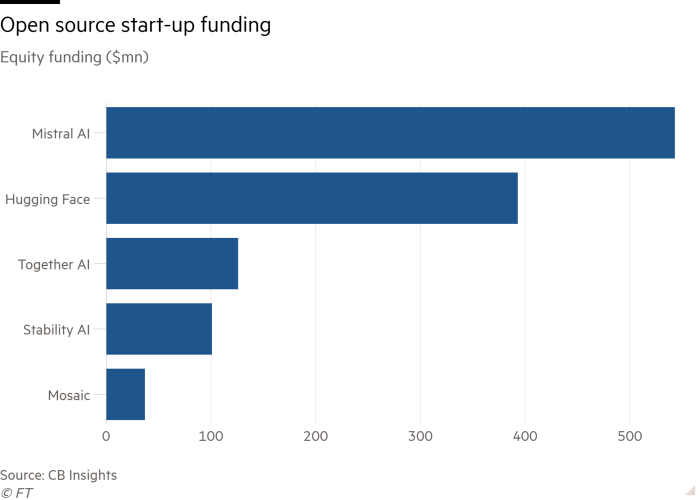Unlock the Editor’s Digest for free
Roula Khalaf, Editor of the FT, selects her favourite stories in this weekly newsletter.
Silicon Valley’s vocal commitment to online collaboration is at odds with the walled gardens of its biggest companies. Open source software, a term coined in 1998, remains a popular idea. Artificial intelligence companies are the latest to preach its benefits. Do not be fooled: the tech sector will never embrace true openness.
Open source was a programmer-led movement that endorsed making source code available to the public to modify, build on and improve. Accessibility and transparency aid scientific breakthroughs. Free computer operating system Linux is the flagship product. But openness was behind the development of the internet itself.
AI has produced a new fight between open and proprietary tech. In March, Elon Musk sued ChatGPT creator OpenAI, claiming that what he had donated to as an open source organisation (hence the name) had become a “closed-source de facto subsidiary” of Microsoft. He noted Microsoft’s perpetual licence for much of OpenAI’s intellectual property.
Musk has since released the model behind his AI chatbot Grok as open source. Other notable open source AI models include Meta’s Llama, which was released to the public after it was leaked online. Self-interest plays a role: this has helped Meta to set itself apart from companies that released earlier, closed models. Its own generative AI-supported services will benefit from improvements that come from the public.
So far, however, open source models have yet to present a real threat to OpenAI, which hit an annual revenue run rate of $2bn at the end of last year. That highlights the importance of a pre-packaged product and a sales team which can explain its use cases.
The distance between the two sides in this debate risks being overstated. Meta’s AI model is not truly open, given restrictions on who can use it. The definition itself is up for debate. Mistral, described as an open AI start-up, charges for some of its models.

Researchers at Carnegie Mellon University say that in AI “open” can be more a marketing term than a technical descriptor. Some open source models do not permit reproduction, others use restrictive licences. The Linux Foundation calls this “openwashing”.
The Open Source Initiative is attempting to draft a definition of open source AI. But this will not stop tech companies adding restrictions to AI models they refer to as open. The sector’s share of the S&P 500 is close to a record. It did not reach that size by sharing all of its products for free.
Lex is the FT’s concise daily investment column. Expert writers in four global financial centres provide informed, timely opinions on capital trends and big businesses. Click to explore





